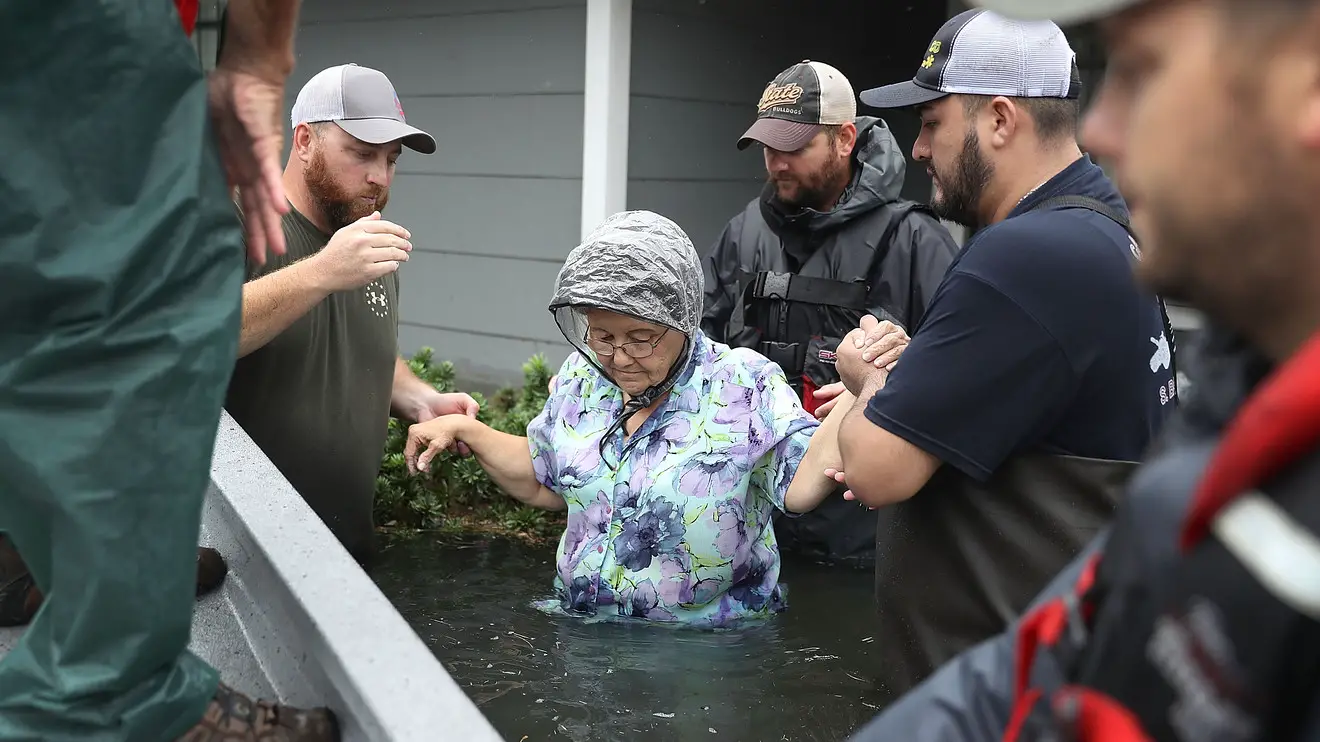If there’s one thing you can count on besides death and taxes, it’s natural disasters. From recent major hurricanes to the massive wildfires that consumed Canada this past summer, too many people who face these tragedies head-on are ill-prepared for them and don’t have the spare cash necessary for the supplies and services required to ride them out.
Natural and manmade disasters can be especially hard on retirees living on a limited budget or fixed income. However, if you’re a retired person who is 62 or older and has owned your home for decades, you can tap into all that equity you’ve been building up in the form of a reverse mortgage.
If you qualify for a reverse mortgage, you can receive hundreds of thousands of dollars in loan proceeds and need never make a mortgage payment unless you choose to. You don’t have to repay the loan until you die or move.
Says All Reverse Mortgage, Inc., HUD, or the Department of Housing & Urban Development publishes interest data for reverse mortgage lenders each year. It’s important that you find a firm that will offer the lowest rate since lower rates will mean more money for you. Something that will come in very handy should a natural disaster arise.
But how else can seniors better prepare for a natural disaster? According to a recent report by Interior Health, when natural disasters occur, such as floods or wildfires, people are either asked to remain inside their homes or mandated to evacuate immediately. You need to prepare for both events well in advance. Preparation is said to be especially important for seniors who might need assistance when they evacuate their residence.
Says the Interior Health Emergency Preparedness Coordinator, people who are most vulnerable need a solid evacuation plan and assistance. This includes not only pre-packed clothing, medications, and other necessities but cash. They can’t rely on friends and family who have lives of their own, but instead someone or some organization that’s prepared to drop everything in order to assist the needy.
Here’s how you can better plan for a natural emergency in your retired years.
Prepare an Emergency Grab-and-Go Bag
It’s recommended that two varieties of bags or “kits” are prepared during a natural disaster. Emergency kits are said to come in handy even if the government forces you to stay indoors during a natural disaster. It should contain the supplies you need for everyday life stored in one or two containers like duffel bags or rigid plastic bins.
You should learn about what supplies you should include in your emergency kit, such as first aid, medications, water, power bars, and more. Store the emergency kit in an area of your home that’s easy to access, such as the garage, a hall closet, or a spare room.
The grab-and-go bag is intended for evacuation. It’s a small emergency kit that you can easily carry with you. Create grab-and-go emergency kits for your home, vehicle, and even workplace if you’re still working past 62 years of age.
An Emergency Plan is a Must
You and your spouse should sit down and create a “fill-in-the-blanks emergency plan.” This contains all the pertinent information you will require to stay safe. It will assist you with how to go about contacting other people in your area if you should get separated. Here are some additional considerations retired and senior folks should consider:
–If you require medical prescriptions, ask your primary caregiver to give you an additional supply to add to your grab-and-go bag and emergency kit.
–Whistles and personal alarms (perhaps on your smartphone) allow you to call for help.
–Additional cash and credit cards for unexpected financial needs.
–Additional pairs of eyeglasses, hearing aids, plus hearing aid batteries.
Build a Trustworthy Support Network
Retirees living on fixed incomes need to rely on others in times of need. This means it’s important to make the time to build a trustworthy support network of at least three people, which might include family and friends you can rely on to can assist you physically, emotionally, and if need be, financially during a natural disaster emergency.
You need to add their contact information to the shared emergency plan. This includes full names, email addresses, and phone numbers. Everyone included in the emergency plan should have agreed upon an emergency destination, such as a friend’s home in another destination or perhaps the parking lot of a nearby supermarket.
Natural disasters of one kind of another are bound to occur, especially if you live in a location prone to them. If you’re a retired person living on a limited income, it will pay to be prepared financially and with a rock-solid emergency plan. Your very life might depend on it.


